Marketing guru Ken Roberts knows it’s controversial but says saying sorry in a crisis solves nothing
Ken Roberts learnt resilience emerging from a traumatic childhood and built a global business from scratch. Now he urges corporate leaders to stand firm in the face of criticism.
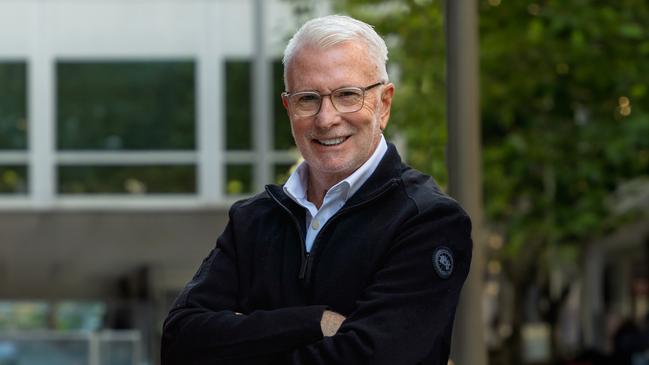
For more than a quarter of a century Ken Roberts has been acclaimed as a doyen of the Australian marketing industry.
He has led the firm he founded in July 1994, named “Forethought”, to be consistently ranked as one of the top marketing consultancies in the country.
He’s assisted challenger brands and restored the more established that have been tarnished: Think Colonial, ANZ, Kmart, Optus, Jetstar, Coles, AustralianSuper, CBA, Deloitte, NBN and Allianz.
He is also a serial innovator and inventor, lauded internationally for his patented work in the measurement of emotion and the drivers that lead to changes in the behaviour of consumers.
After opening a New York office in 2012, he has worked extensively with American brands such as Hershey, Applebee’s, JetBlue and Nestlé.
But Roberts is unconventional. For a start, his upbringing was tumultuous, which he details publicly for the first time in our interview.
Having worked extensively for public companies – he is currently writing a booklet on trust – he also claims that the Australian corporate affairs industry has got it wrong in advising firms how to respond to a crisis.
“Don’t apologise! It is not what the market wants, it will likely lead to the CEO’s resignation and it won’t repair the brand,” he declares.
“We’ve got objective evidence, tracking data on brands. I can tell you, it has never helped stop the slide of the brand. I can show you Westpac. I can show you CBA. I can show you all sorts of brands where the CEO has resigned.
“Firstly it is brand damaging to the CEO. Ask (former Westpac boss) Brian Hartzer or (former Optus CEO) Kelly Bayer Rosmarin how they are going after their apologies.
“It is not helpful to the CEO and is not helpful to the brand. Every PR agency will tell the CEO to apologise. But in the actual brand data, we don’t see the justification.”
Scapegoating serves no purpose
Roberts has advised Optus for more than two decades, including in the wake of the data breach in November 2023 that cost Bayer Rosmarin her job.
While he acknowledges more could have been done by the telco to protect its customers’ data, he stresses the safeguards the organisation had in place were compliant with the prescribed risk tolerances set out by its internal risk committee.
Before that breach, he claims Optus had restored 100 per cent trust in its brand following a previous cyber attack in 2022.
Roberts says Bayer Rosmarin’s public acceptance of responsibility and her subsequent apology did nothing to stop the negative public opinion of Optus and left her personal brand forever scarred.
“We worked with her boss at CBA and she was a top performer. She went to Optus and she was a top performer. I’ve never seen a CEO that has had so much devotion from her colleagues,” he says.
“She is a massive loss to women in the CEO group. I hope that she comes back and comes back soon.”
The now 67-year-old Roberts will draw howls of criticism for his views, but so be it. He has never been one to go with the flow.
In the globalised research industry, Forethought – of which he is now executive chairman – stands out for its innovation and independence.
“Our secret sauce is definitely our data analytics and our innovation. Our measurement of emotions has been game breaking and category defining. We discovered the relative importance of discrete emotions and we came up with an implicit metaphor-based scale that enabled us to work out economic returns of eliciting an emotion in marketing communications,” Roberts says.
That and other discoveries have been patented in Australia, Europe and North America.
This year Forethought has launched a new business called BrandComms.AI, an AI-driven platform built on three decades of Forethought data, whereby the models are customised for each client.
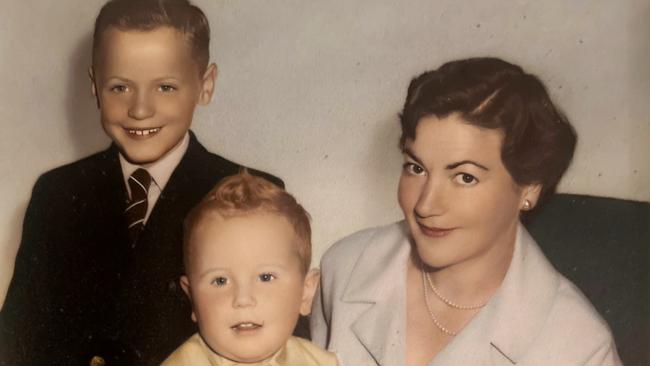
The platform is enabled by Forethought’s patented marketing science methodologies trained on proprietary category behaviour data sets.
Academic studies have claimed that generative AI is superior to humans in creating advertising and Roberts describes the new product as a “game-changing leap in marketing effectiveness for advertisers”.
“What ordinarily takes 12 weeks is taking days (with generative AI) and at a fraction of the cost. The main point, with only one or two exceptions, is the Gen AI output is returning superior results to what is being created by advertising agencies,” he says.
“It’s fast, markedly cheaper and better quality. Our intention is not to replace the advertising agency but to help them consistently produce work which is aligned with the brand’s objectives and strategy. Something creative agencies have always struggled to do.
“We are being welcomed with open arms in Australia, Asia and North America. I have moved to our New York office to lead our efforts in North America.”
He believes that his current core enterprise will eventually become a service adjunct to the new AI business.
“Forethought will help build the content store with the research findings,” he says.
“But we think that BrandComms.AI will become, on order of magnitude, vastly larger than Forethought.”
Confronting a traumatic childhood
While Roberts has long been lauded for his contribution to the marketing profession, few know of the shocking events of his youth that have shaped him. Even some members of his own family are unaware.
Roberts was born in Melbourne in 1957 to an unwed mother who gave him away to the St Joseph Baby Home in Broadmeadows, where he was raised and then adopted by ex-serviceman Lloyd Roberts and his nurse wife, Hazel.
Lloyd and Hazel had previously adopted a baby named Alan, who was seven years older than his new younger brother.
Alan Roberts drifted into a life of crime, was expelled from two schools and at the age of nine was put into a boys’ home.
When he returned to the family home, he would endlessly bully and torment young Ken.
“My early childhood was absolutely horrendous with Alan. I ran away from home when I was 7, hiding in an abandoned building for days. Then I ran away again when I was 8 and hid under a park bench for the night when Alan set the house on fire and blamed me for it,” Roberts now says.
Roberts attended three schools in Pascoe Vale before he finished year 10. The last, St Joseph’s, he describes as “abusive, violent and unsafe”.
By grade 10 he was missing a third of the school year through truancy and illness, so by the end of the year was asked to leave. But finding a school for his senior studies proved difficult for his parents.
Roberts was refused a place at both the local high and technical schools before being accepted by an experimental Catholic coeducation school that was paradoxically set up on the site of the St Joseph’s babies home after it closed.
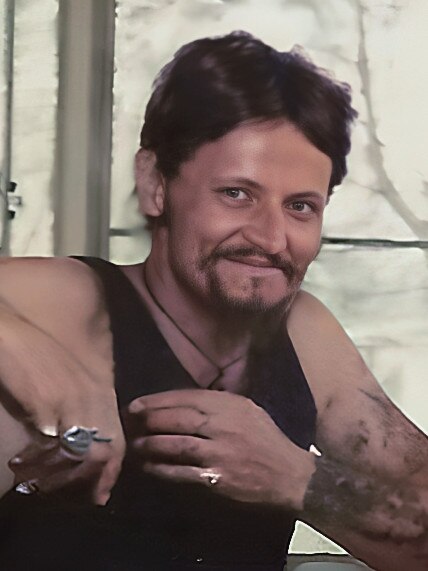
While his senior studies were a disaster – he failed year 11 and eventually dropped out of year 12 – he says a kind English teacher at the school helped engineer a turning point in his life.
Roberts didn’t know it at the time, but he has dyslexia (as does one of his daughters).
“My English teacher helped me to realise that when I was writing, my writing was two sentences behind my thinking,” he says.
“That was the reason why there were so many errors in my written work. She taught me to remain focused on the sentence that I was writing.”
He is now a prolific writer for trade publications in Australia and overseas.
His first job after leaving school was cleaning up chemicals, alongside mainly immigrant workers, at the Kodak factory in Melbourne.
At night for extra cash he worked in a violent pub in Pascoe Vale, down the road from a halfway house for serious ex-criminals.
“Those experiences really grounded me to be able to talk to anyone about anything. Even people who were being aggressive towards me. I learned how to empathise with them,” he says.
He stayed at Kodak for nine years, becoming the first non-university graduate to join the firm’s technical services division.
There he also started his marketing career, becoming responsible for the firm’s packaging design.
At night, he completed an associate diploma in advertising at what is now known as Melbourne’s RMIT University. It was the start of his stellar academic career.
While he never finished high school, Roberts completed a bachelor of business, majoring in marketing, at Monash University in 1987 before completing an MBA at Melbourne Business School, and becoming an Associate Professor there.
Today he sits on MBS’ industry advisory board.
Giving back and healing pain
In light of his background, Roberts has undertaken extensive pro bono research on behalf of some of the most underprivileged groups in Australia.
His findings into homelessness in Australia helped to inform the Rudd federal government’s decision in 2008 to announce a minister for homelessness.
That was more than 20 years after Roberts’ adopted father, a former soldier who lost one of his lungs in battle and spent five years in a repatriation hospital in Melbourne after World War II, died in 1987 at the age of 72.
His mother, Hazel, for many years lived only three doors down from Roberts and his family. She was 78 when she died on April 20, 1998.
His infamous older brother Alan, who spent time in detention centres, Pentridge jail and lost five of his mates to heroin overdoses, attended his mother’s funeral that day. There he met for the first time a then 17-year-old boy named Dylan – his biological son.
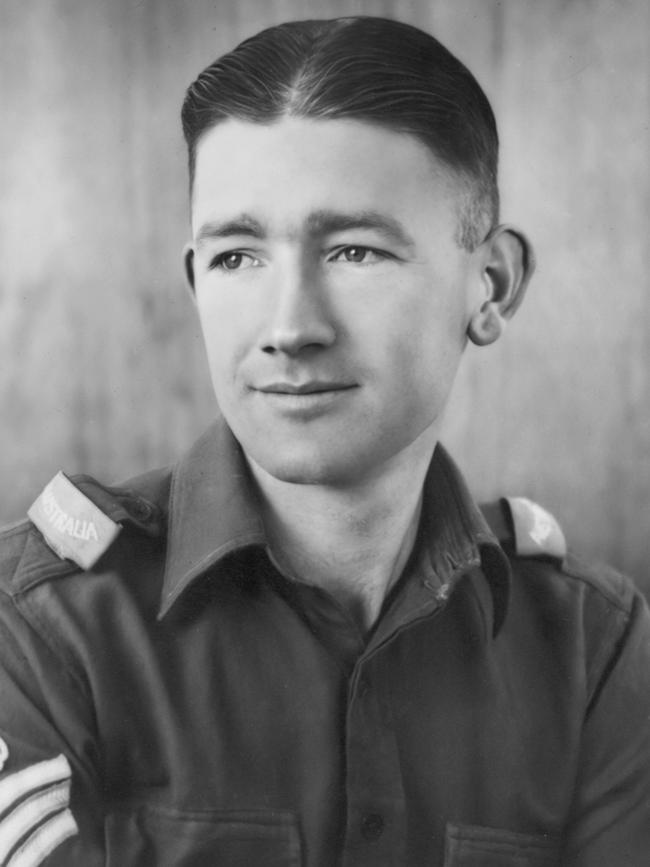
Given Alan’s troubles, Roberts and wife Gerrie had taken responsibility for Dylan’s upbringing and education, sending him to board at Marist College at Ashgrove in Brisbane. Dylan completed year 12 and his uncle now proudly reveals he has “done outstandingly well as a chef”.
Alan Roberts died after a battle with emphysema on October 25, 2007. He was only 55.
Ken Roberts paid for the funeral and buried his brother.
Why, I ask, given all the pain Alan had caused him? After a long pause, Roberts eventually replies softly: “I just thought then that he was a victim of the institution that he originally was in and his circumstances,” before adding “I’ve never told anybody that, by the way”.
Ken and Gerrie Roberts are today the proud parents of three children. Their eldest is a doctor, the youngest a lawyer.
Their 28 year-old middle daughter, named Isobell, works at Forethought. She has driven the launch of the BrandComms.AI business.
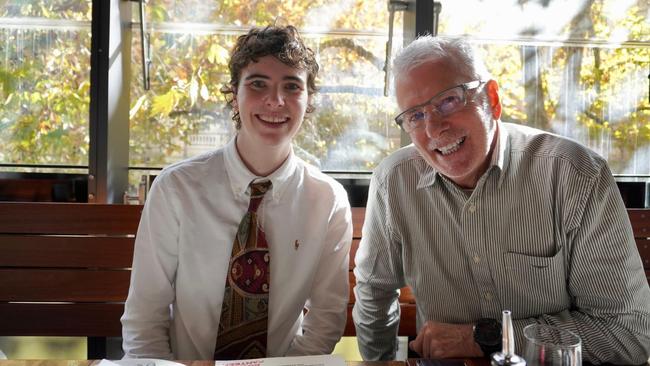
I ask Roberts why he has decided to reveal now, in such graphic detail, the painful story of his life. In response, he stresses that if he were much younger, he would not have.
“Because people would judge me,” he snaps.
“But I’m past being worried about that. I think for other people, it is a story that can be helpful to them.”
Asked what the troubles of his past have taught him, he initially apologises for giving a clichéd response, before answering with a single word: resilience.
“Going from starting a business to growing the largest insights firm in Australia has been traumatic for my family and me along the way,” he says.
“There have been peaks and troughs, and just like for every small business, I think that resilience is what has kept the momentum and enabled us to continue.
“Because other folks would have probably packed up long before now.”




To join the conversation, please log in. Don't have an account? Register
Join the conversation, you are commenting as Logout